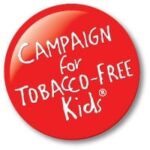Cote D’Ivoire Becomes Second Country in Africa to Require Plain Packs for Tobacco
To Implement Lifesaving plain packing measures
Yolonda C. Richardson, president and CEO of the Campaign for Tobacco-Free Kids, stated it in Washington, D.C., recently.
 The Campaign for Tobacco-Free Kids applauds the government of Cote d’Ivoire for its new ministerial order that will bring plain packaging on tobacco products to the country. Cote D’Ivoire is the second nation in Africa to introduce such a measure and joins Mauritius in implementing this lifesaving public health measure pioneered in Australia and now adopted by dozens of countries around the world.
The Campaign for Tobacco-Free Kids applauds the government of Cote d’Ivoire for its new ministerial order that will bring plain packaging on tobacco products to the country. Cote D’Ivoire is the second nation in Africa to introduce such a measure and joins Mauritius in implementing this lifesaving public health measure pioneered in Australia and now adopted by dozens of countries around the world.
The new order in Cote d’Ivoire will come into effect in November of this year and will require plain packaging for cigarettes and other tobacco products—a significant step in curbing how tobacco companies market these products to African youth. Evidence from around the world shows that plain packaging works to reduce the appeal of cigarettes. In some countries, smokers are more than twice as likely to notice health warning labels on cigarettes sold in plain packaging.
For decades, the world’s largest tobacco companies have used attractive colours, eye-catching designs, and engaging characters as marketing tools for tobacco products to attract new customers, particularly nonsmokers and youth. Appealing packaging designs from tobacco companies like Philip Morris International and British American Tobacco drive sales and mislead consumers about the harsh realities and dangers of tobacco use.
Yet around the world, governments are fighting back by restricting the ways tobacco companies can use packaging as a marketing tool. Plain packaging requires that tobacco products be sold in packs that are uniform in colour and texture, mandates standard shapes, sizes, and materials, and prohibits any branding, logos, or other promotional elements in packaging.
The Campaign for Tobacco-Free Kids applauds Cote D’Ivoire for joining Mauritius in bringing plain packaging to Africa. These new measures should serve as a reminder that countries around the world can and must take swift action to curb tobacco use, protect public health and stop Big Tobacco companies from targeting youth.
 The New Experience Newspapers Online News Indepth, Analysis and More
The New Experience Newspapers Online News Indepth, Analysis and More
